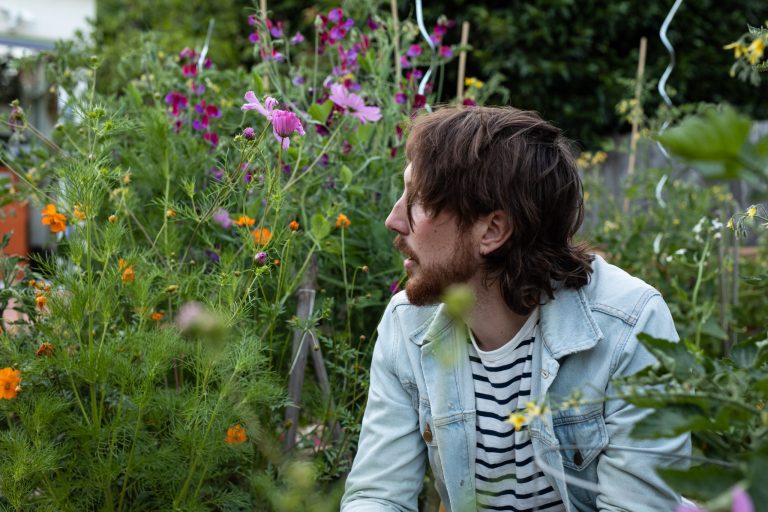Victoria’s Aidan Knight has been a fixture of the local and Canadian music scene for the better part of a decade. With critical acclaim for his albums Versicolour, Small Reveal, and Each Other, we are please to welcome him as The Zone’s @ 91-3’s August Band of the Month.
After a quick photo shoot in Aidan’s back garden — which had us climbing on sheds and using a mirror that Tyson found on the side of the road — we retired to the deck to chat about the state of the world, youth, and the Safety Dance.
Unfortunately we didn’t have a chance to chat about Aidan’s favourite breakfast cereal, how many microphones it takes to properly mic a drum kit (it’s one), or his latest adventure, fatherhood.
Tyson Elder: Congratulations on being not only August’s Zone Band of the Month but the final Band of the Month for 2020.
Aidan Knight: Thank you.
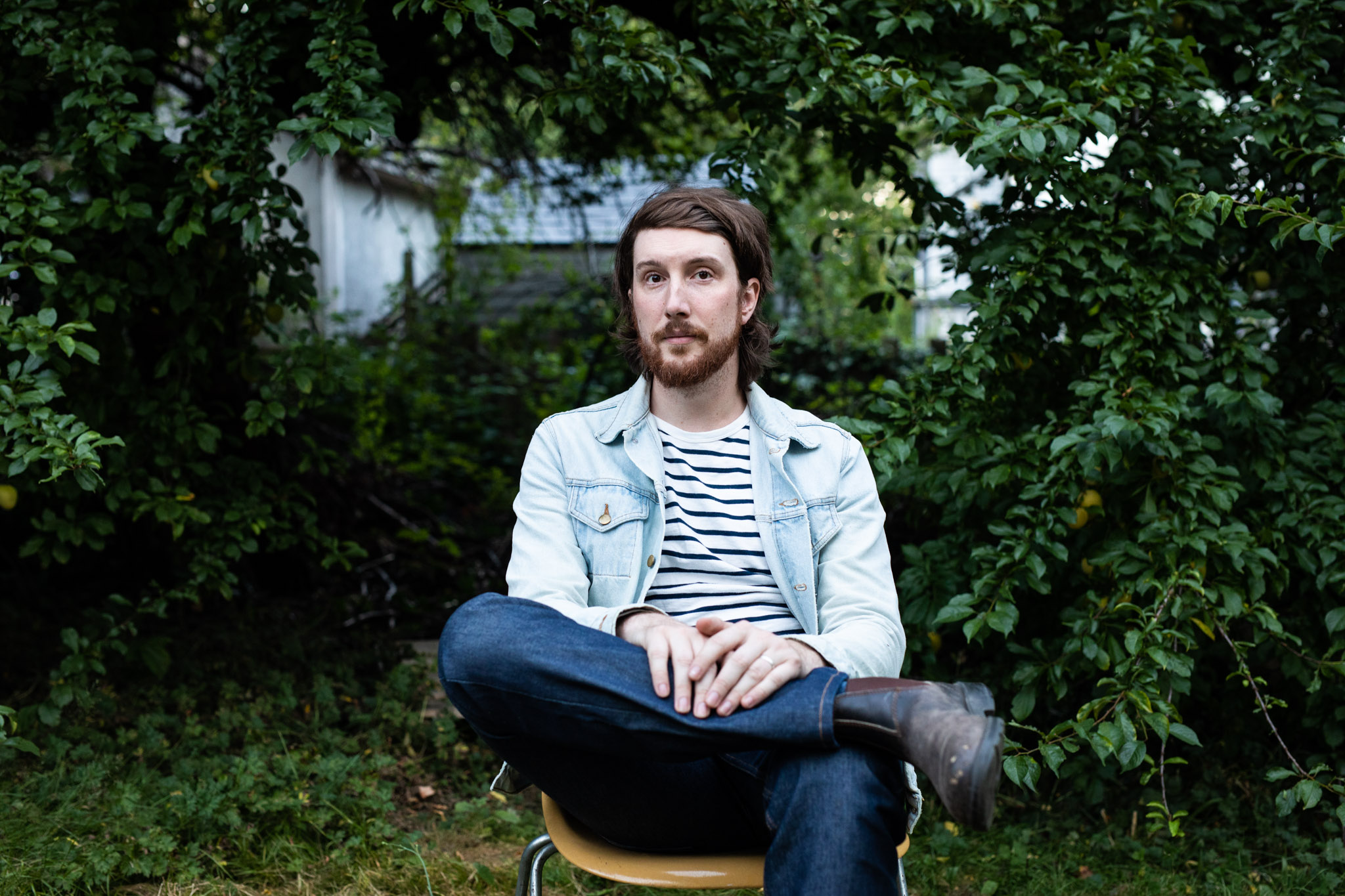
TE: It’s been pretty nice to be able to do photo shoot in your backyard.
Aidan: Thanks. I like our backyard and it’s still a work in progress. No one reading this will know what I’m talking about but there’s just piles of shit everywhere.
TE: That’s everyone’s backyard, man. [Laughs]
Aidan: I know… This area here with all the wood chips and the planter boxes was the big project. We talked about it last year and as soon as the pandemic happened we decided to just do it. If we’re ever going to do it let’s just do it now.
TE: During our photo shoot you were saying someone famous might have lived here.
Aidan: Yes, according to my neighbours – the lead singer of Men Without Hats, Ivan, used to live in the basement of our house back in the day. The way our neighbour told us about the time Ivan lived here I’m pretty certain that he wrote Safety Dance in our house. Then with the residual royalties he bought a house somewhere else. That doesn’t happen anymore. I don’t know.
TE: No, no. It sure doesn’t.
Aidan: Buying a house with your song royalties – get real.
TE: Men Without Hats has always been a band that I’ve never thought of being from Victoria. I’ve always just known them as that goofy song, Biodome.
Aidan: Right? Yeah, he probably made quite a lot of money in the late 80s or whenever that was.
TE: I’m sure he still makes money off it.
Aidan: Definitely.
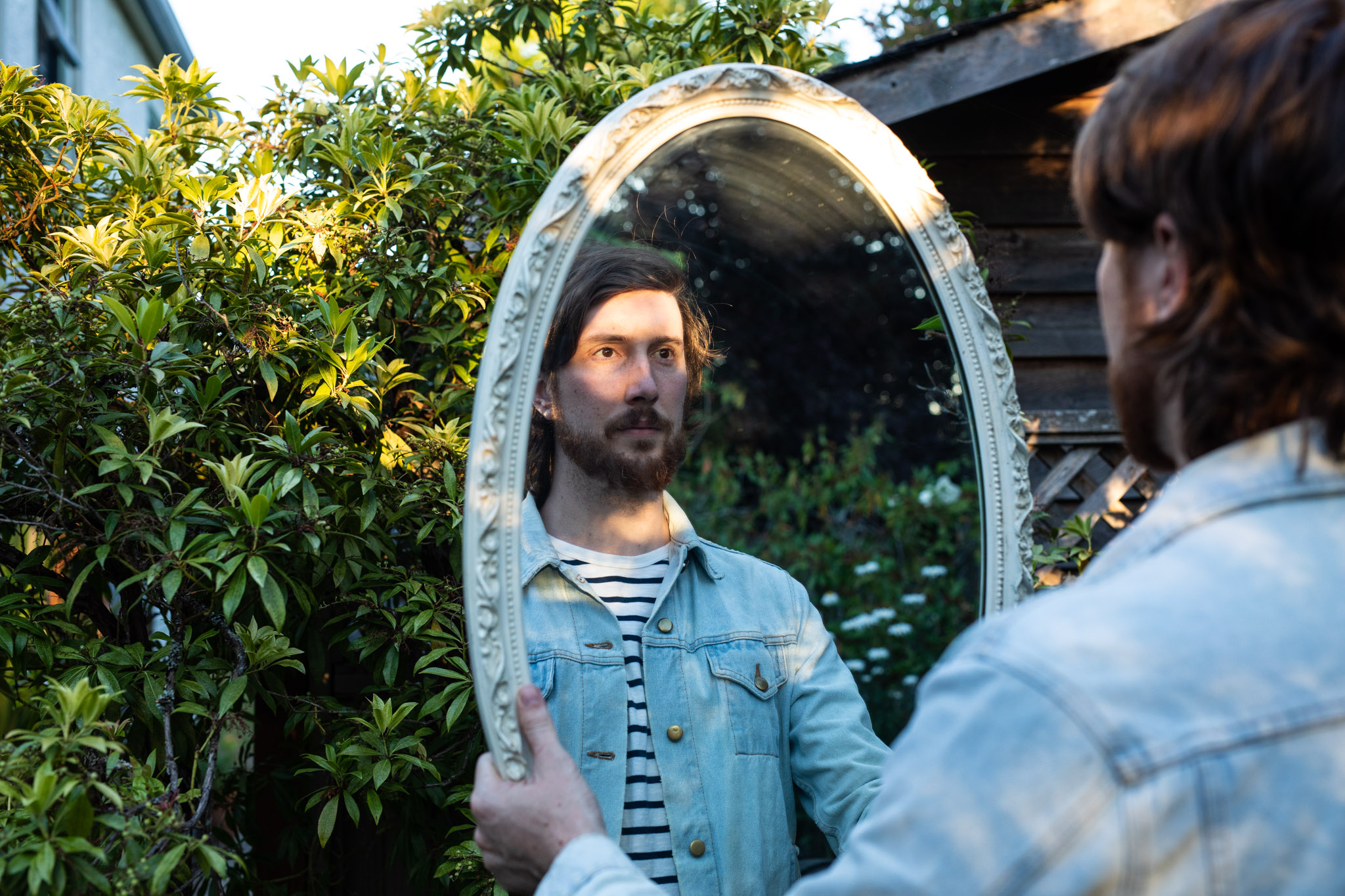
TE: Speaking of songs that are going to make loads of royalties to buy you a house. Let’s talk about your single Sixteen Stares.
Aidan: Sure. I think it was one of the first songs that I finished for the new record. I don’t remember exactly when I started writing it, or how I wrote it, or really how I recorded it. The whole process of making all these songs is they’ve kind of blurred together because I’ve just been working on them for a long while. [Laughs]
Back in 2016 after Julia and I got back from touring a lot we had sort of decided to move to Germany to take a shot of trying to live in Berlin. Then a whole bunch of family stuff came up and we decided “It’s okay, we got to go home” after going through a lot of yeah bureaucracy to stay in Germany with visas and stuff like that. In the end it was good that we came home and I started writing songs within the first three months of coming back. I had thought of a few ideas for things while we had an apartment in Berlin and a few things made it onto the final record from there.
Sixteen Stares was a song that made me think back to my younger musician days. Thinking about what I thought was possible and achievable and how I thought my life was going to go. I probably wasn’t even really thinking about how my life was going to go at the time because I was 21 or something like that. Sixteen Stares is based around me being younger and if it’s not totally obvious it’s an alliteration about skateboarding. [Laughs] It’s sort of a song about skateboarding and being young and kind of thinking about nothing.
TE: It’s interesting how we look at the future when we are that age. I wouldn’t have expected where my life is now and this is you know what I wanted to do and what I want to be. You look at to the future and it sort of nothing and you don’t know what it really is going to be.
Aidan: I think I personally had sort of high expectations. First of all, I was very naive about how lots of things work in music and I’m sure a lot of people are also similarly as naive as I and was. No matter what you think about, you know, popular music or bands or songwriters or producers or the music industry as a whole you almost have to be not only incredibly talented, able to write great songs and be a marketable. You also need to have the right people who are behind you and financing things. All of that. I think my experience of when I was around the ages of 19-21 before I put out my first album, Versicolour. I really thought that I could be a part of a band or some sort of musical scene and having the right things behind you would be enough to get you a good comfortable living. To be honest, I never had aspirations to be a number one selling artist, and that I was going to make stuff that was just my own.
TE: I think you are a highly respected musician in the Canadian music scene.
Aidan: Don’t get me wrong. I like all the music that I make and I wouldn’t trade it away. I guess what I’m getting at is that I’ve realized over time that it’s not enough to be super talented, and it’s also not enough to be really attractive and marketable, and it’s not enough to have all the money behind you. None of that stuff is enough. There’s another level that’s going on that has to have something to do with luck, timing and how much you’re willing to sacrifice of yourself. I listen back to when I was playing bass and guitar with Maurice, that was a project that I was going to Vancouver record and it was on Warner Brothers and with David Foster. There was a lot of money, and that was all tied up in the project, and they just didn’t end up releasing it. So, I just came back to Victoria where I worked and borrowed money from my family. I would just go and sleep on the studio floor at John Anderson’s studio in Langley. I didn’t want to spend a lot of money on this because if no one wants to put the album out, I just couldn’t go through that again. Putting everything into something, having everyone behind it and then it not going somewhere. It would be devastating to me.
TE: That’s going to be a heartbreaking situation for any artist. You’ve put all that time and everything into it and then for it to not be released.
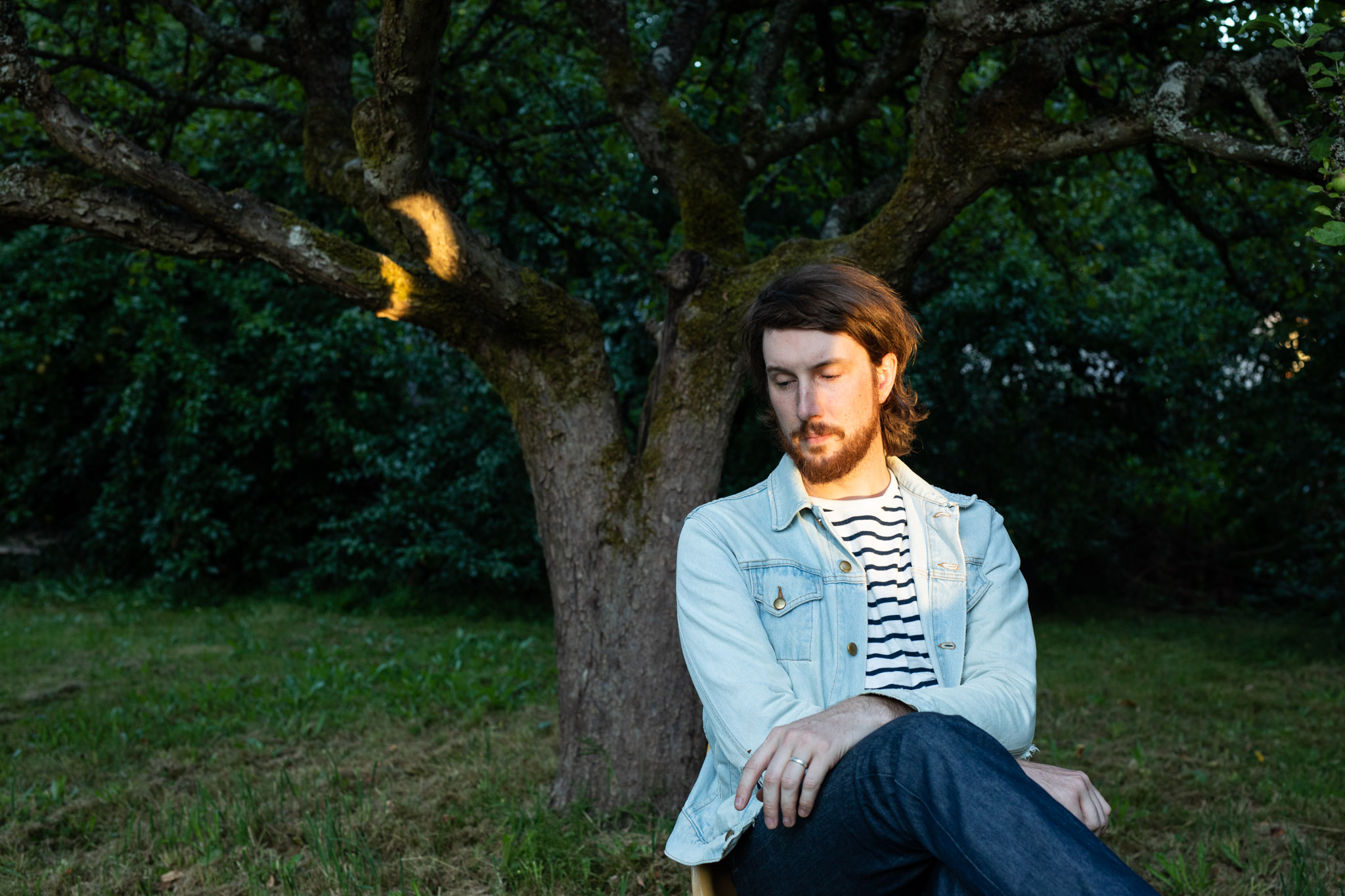
TE: Maybe eight or nine years ago, every Canadian city had a thriving music scene with their own distinct sound of some some form. Each city had this their own sort of incubator and I felt like Victoria had a very distinct sound at one point too. Do you have any thoughts on why that sort of went away? Is it because people are bailing on their cities and heading heading east or west?
Aidan: There is certainly an economic equation. Both Victoria and Vancouver are very expensive cities, but Toronto’s expensive as well.
TE: Especially if you want to live in those areas where the music scene is thriving.
Aidan: True enough. I’m not a social scientist or anything like that so I couldn’t really say sociologically what’s going on and why things go in waves. When I was just graduating high school, probably the biggest place that you could play an all-ages show was in Kelowna. Big crowds of 600-1000 kids. It was very hard to get something like that going on in Victoria or even Vancouver. That one place was the golden area all-ages show from 2001-2006.
TE: Even now all-ages shows have disappeared here because there are no all-ages venues here anymore. Places like Big Fernwood are gone. The only place for an all-ages show now is really Vinyl Envy.
Aidan: Generally, I’m actually a sort of an optimistic person but I catch myself with these sort of curmudgeonly opinions that kind of age me prematurely. I do have a I have an opinion about… I’ll just say it… rock music is like jazz now. It’s going to have to be a subsidized art form. The way things progress in music and the way that technology works. There’s a scene of Instagram guitar being its own genre of music and it’s incredible. Young kids are doing amazing things on traditional instruments but a lot of a lot of stuff has shifted over into electronic music production and different expressions. It’s not centered around one genre. When I was playing all-ages shows, the cool thing about that was you could have metal bands, emo bands, alternative bands and weird art Indie bands could all play together on one bill. For the most part it was post-punk emo stuff. That was the stuff that made for a packed show. That’s when rock radio actually had predominantly heavy rock music and that’s just not it’s just not as popular anymore. I don’t know if you can replicate that and maybe there will be a cycle of my kid’s generation who will be interested in what I was doing in 2001-2006. Maybe they would do a kind of a throwback all-ages show scene and that’s what rebuilds it.
TE: I only ask because you’re one of the few people who I know from when I started who was starting at the same time and is still around making music.
Aidan: I still like guitar music so I still make guitar music. Rock may be a dying genre, but people are always going to be interested in and want to listen to that music. I think about this constantly: why does someone make the genre of music that they they make, or why do they continue to do it? Why do some people just do one thing for their entire career, and why do some people change what they’re doing? I’m always trying to change what I do, but the funny thing at the end of what I’ve made all the songs is . . . it doesn’t matter whether it was in 2004 or 2020. I listen back and think, “Oh, this is . . . it’s me.” It’s hard to escape.
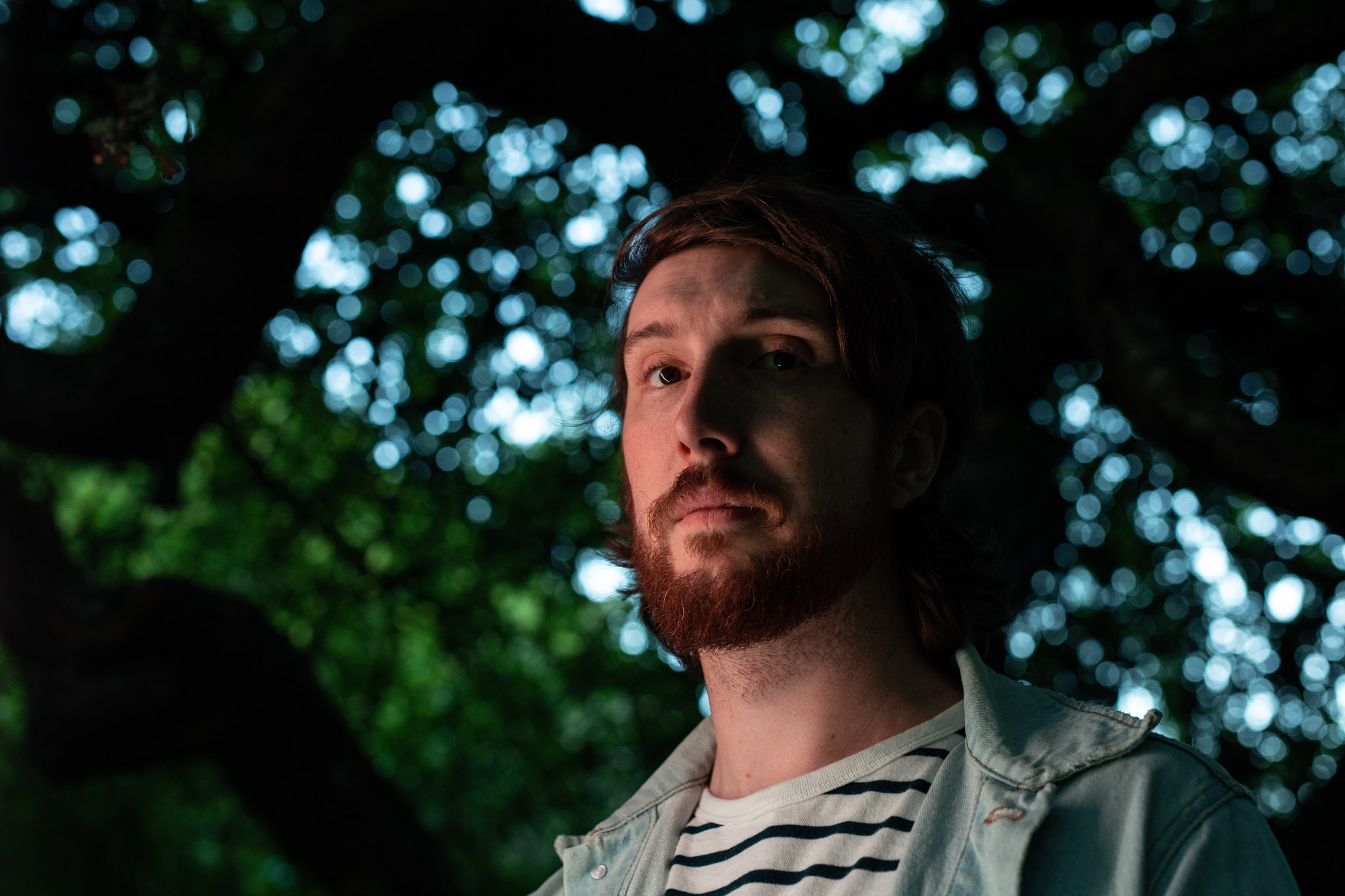
TE: I want to talk about your fourth record coming out at the end of August. It’s been a multi-year process to make, right? Roughly two years ago you were trying out the new tracks at Lucky Bar. But that was 2018?
Aidan: Maybe? I remember it was an April. Yeah, whenever that was. I think it was last year.
TE: Everything feels like a decade ago. [Laughs] When I booked that show I called up Lucky Bar because it’s the only place in town that I book a show for this specific date and they would actually get back to me.
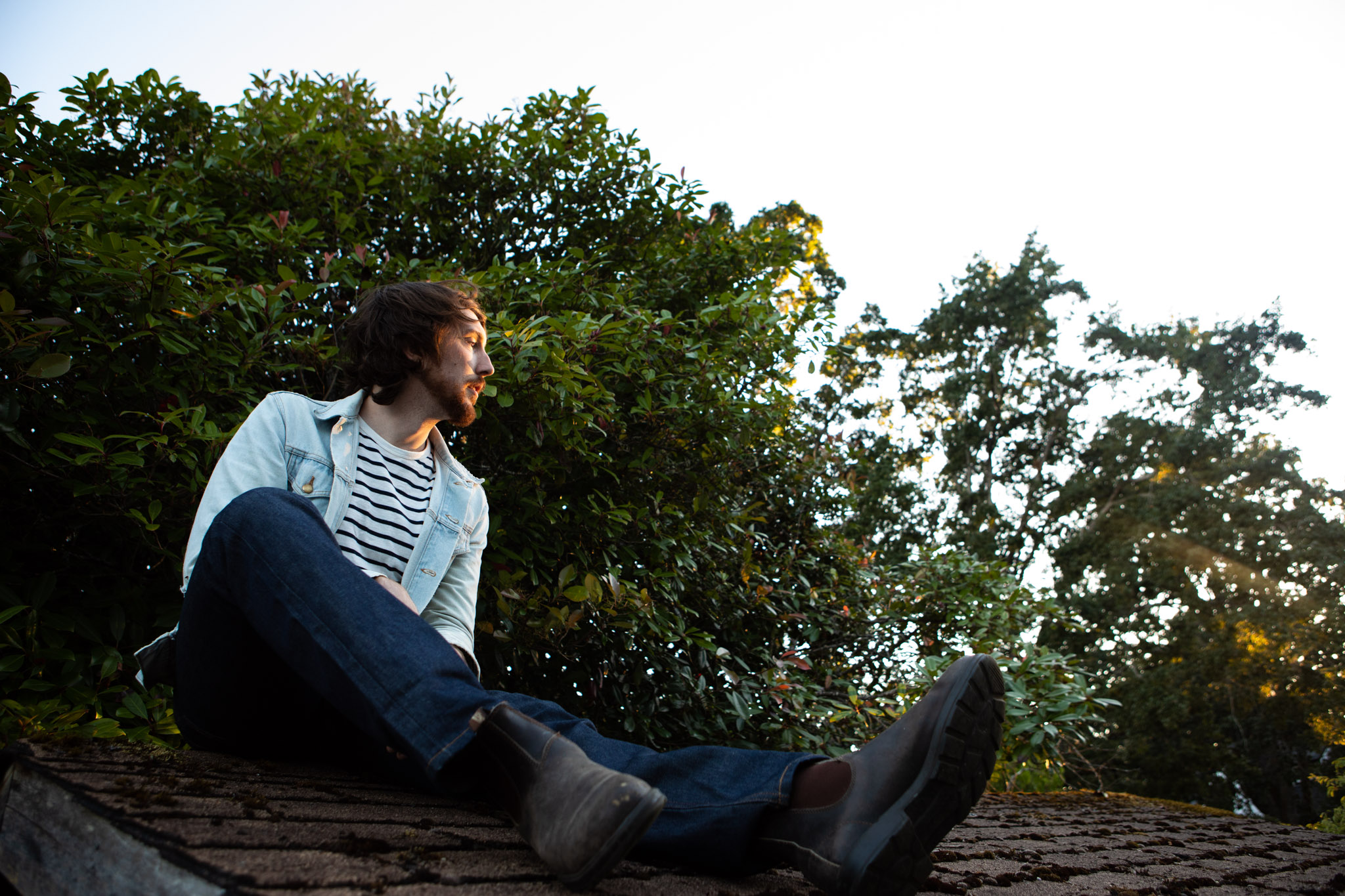
TE: How do you feel about things going forward with touring and that side of things. Did you end up going ahead with your Sidedoor Access album release show?
Aidan: [Nervously laughs] No, I decided to reschedule it and I haven’t actually picked a time yet. I’d like to do something in August for the album release. I think Sidedoor Access is one of the better options for live online things. My thing is I’m always looking to make something that I think sounds and looks good and it’s really hard to do that live-streamed without spending a lot of money and figuring out having multiple people being part of the production. So to answer the question, but what I think is going to happen moving forward, I think there’s probably going to have to be some amount of specific government subsidy. I’m part of a couple group chats with other musicians and we just talked about industry stuff and things pissing us off.
TE: There’s a lot going on in the industry in every industry right now. I think there are bigger conversations to be had about topics like representation and predatory people in the industry.
Aidan: Talking to other musicians gives me a better idea of where everyone’s head is at. And, to be honest, most of them could be a great path out of this. This is how I sort of view the world and that’s why I think an idea like this is is good. We should be subsidize venues. Here’s a great example: did you know the Royal and McPherson Theatres are run by the city?
TE: No, I didn’t.
Aidan: They are city property essentially, but to get booked into those venues is very difficult. When I play in European countries like Belgium, France, The Netherlands, and in Germany specifically they’ll have quite small cities that they that they build an essentially a state-run venue. The venue is run by the city and is very similar to the Royal and McPherson and they have a much higher artistic goal for programming. They could have anything they want in there. The could have spoken word, author readings, classical concerts, plays, and they can have new music like us that’s coming from out of town. I think we should do something that’s more specifically focused on music. You can build that venue or use an existing venue and take it over. Essentially for me I don’t see the path forward coming out of this being a bunch of individual bars getting a bunch of subsidies that will probably just to filter its way up to managers and owners of the bars. It’s not really going to come down to the musicians, and I could see something like one of these venues in Europe being very successful. They already do it in Quebec and if you can actually go and speak enough French and get on a tour with someone who’s actually involved in the Quebec music industry you can do an entire tour that can last a month or two.
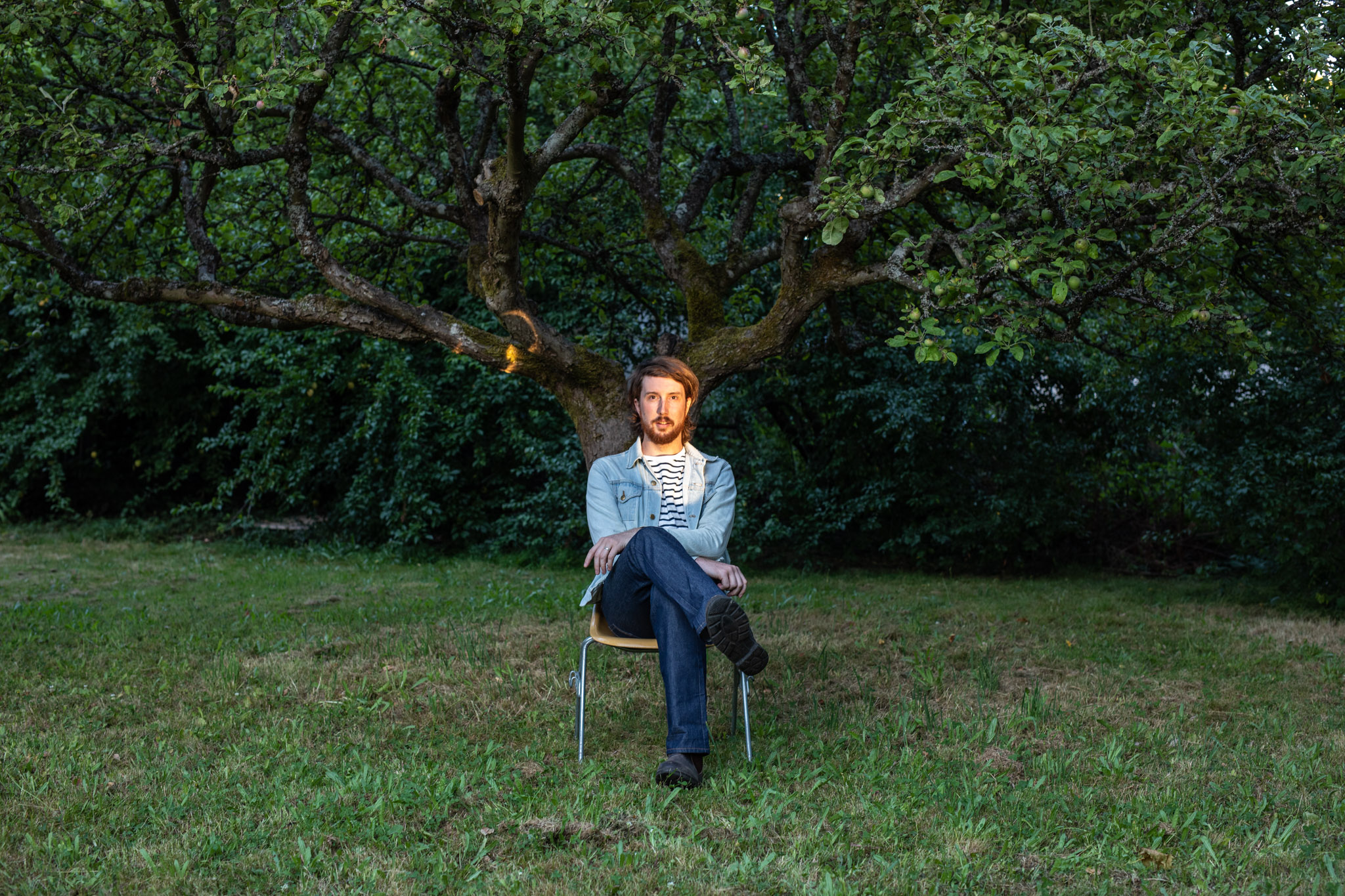
Aidan: I think it would be really cool if you had places like this in Victoria, Vancouver, Kelowna, and Kamloops. You could play the Banff Centre, Canmore, Calgary and Edmonton. All these places could have something like that.
TE: Even to see something on a smaller scale on Vancouver Island. It would be nice if there would be a nice little island circuit of Victoria, Duncan, Nanaimo, Port Alberni and Courtney. That’s five day tour right there. That justifies someone’s time and money to come to Vancouver Island because that’s always a barrier.
Aidan: The truly radical part about it. I don’t think any everyone else is on board. I think it should be essentially free for anyone to just go and see the show. If the band, the venue and the venue operators are all being subsidized to play, it’s a great way to get people to go out into the community to restaurants before the show. It’s almost a stimulus thing.
TE: Bands could even do a circuit; a three night residency. That would be so much better for touring and specifically for figuring out how things are going to work post-pandemic. It’s not great for for bands to be going into a new city every night after they’ve been in somewhat close contact with 400-500 people. So there’s just a lot of things to work out.
Aidan: I was talking to Tyler from Said the Whale and he keeps pushing back when he thinks things are going to come back online. Right now he’s saying summer of next year. When I talked to him months ago, he said, “Yeah, things aren’t coming back until 2021.” I’m like, “Really? Not even the end of this year?” and he’s like, “Not with the people that I’m talking to.” Needless to say, I chose a really good time to put out an album.
TE: You’re not the only one. There’s been a lot of great records that have come out this year. They’ve just sort of slipped under the radar because of the bigger things going on in the world.
Aidan: I don’t know how it’s all going to work with everyone putting out music. I can only think about it from my own personal perspective. I remember, in the beginning, I’d go online, do a couple livestreams showing my new music, and then after about the fourth week I was so burnt out seeing someone starting a live video on Instagram. Things like someone’s trying to do a weekly Sidedoor thing or whatever I don’t know what my mental barrier is that I’m just I don’t want to listen or watch stuff right now.
TE: It’s hard to watch the same stuff over and over. I love Dan Mangan, but I don’t know if I could watch a SideDoor Access show every week.
Aidan: Yeah, but what else are you going to do? Also talking to Dan recently there is a limit to how many people you can have on a Zoom call so for him and it’s actually quite low amount of people at his shows. For him, if he’s doing a tour, he’s playing every night and he’s like playing a 1000-1200 people, whereas the limits are probably around 1000 people on Zoom. Yes, he doesn’t have all the expenses of driving, the gear, paying all the crew and stuff like that. I don’t know. It’s just it’s it’s just difficult and the more and more I think about the money equation of it. There are going to be winners and losers and for every new Taylor Swift record that’s coming out that everyone’s exploding about – there’s a bunch of really good music that’s coming out that nobody’s talking about.
TE: Thanks for taking the time to chat tonight, Aidan. Let’s do this again soon.
Aidan: Anytime.
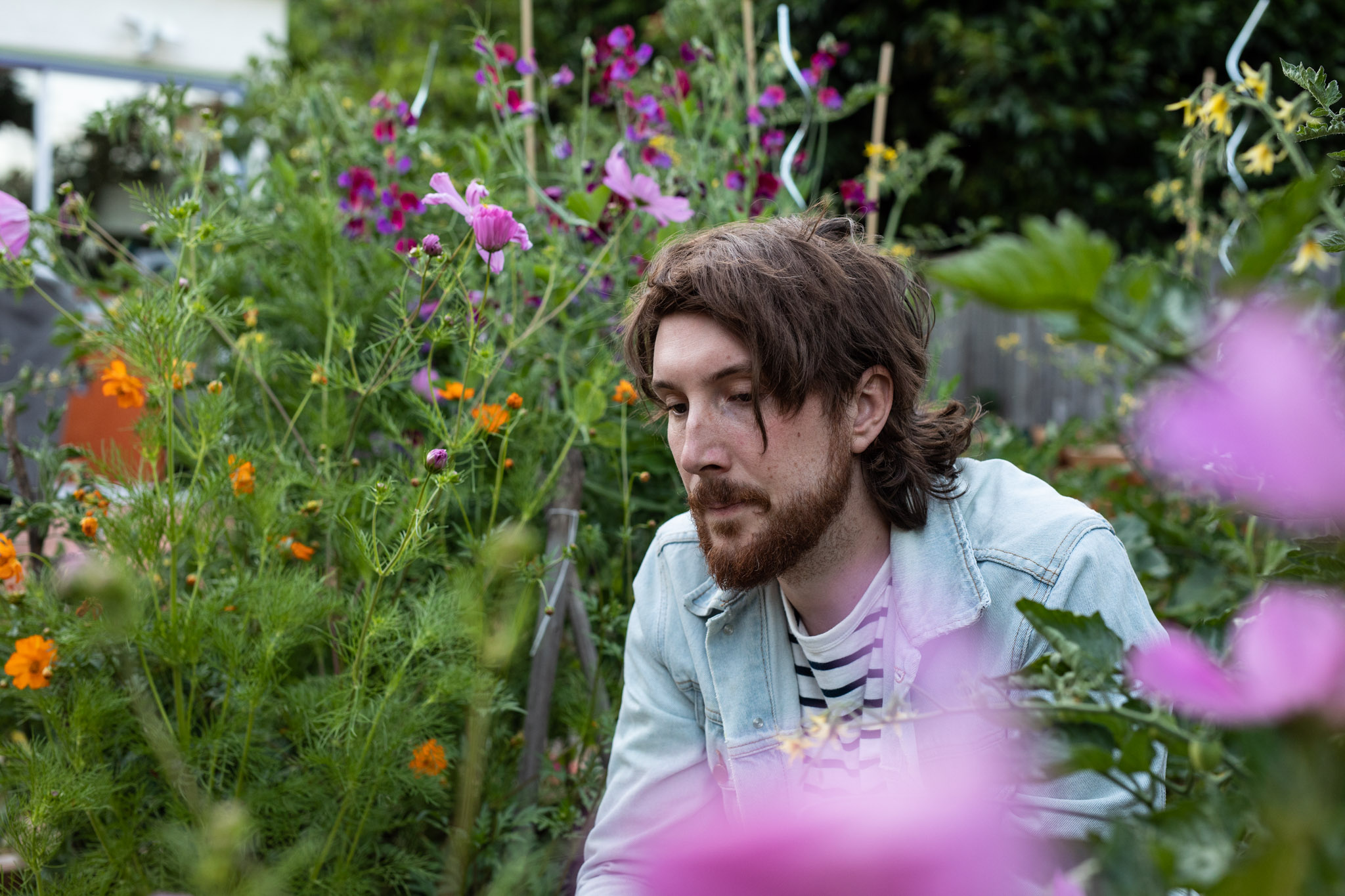
Aidan Knight’s single, Sixteen Stares will be featured all month of July on The Zone @ 91-3. Two more songs off of Knight’s forthcoming self-titled album, Aidan Knight can be found for your ears only on his Band of the Month page.
Rocktographers is proud to be a supporting sponsor of The Zone’s Band of the Month program.

